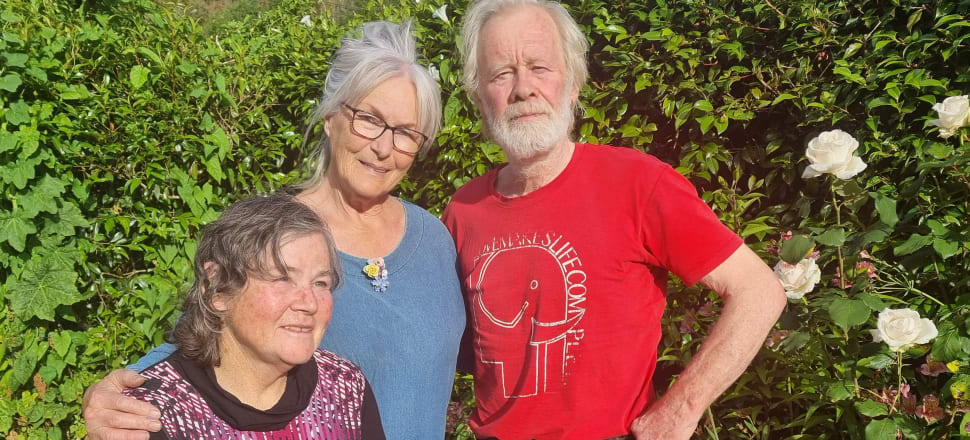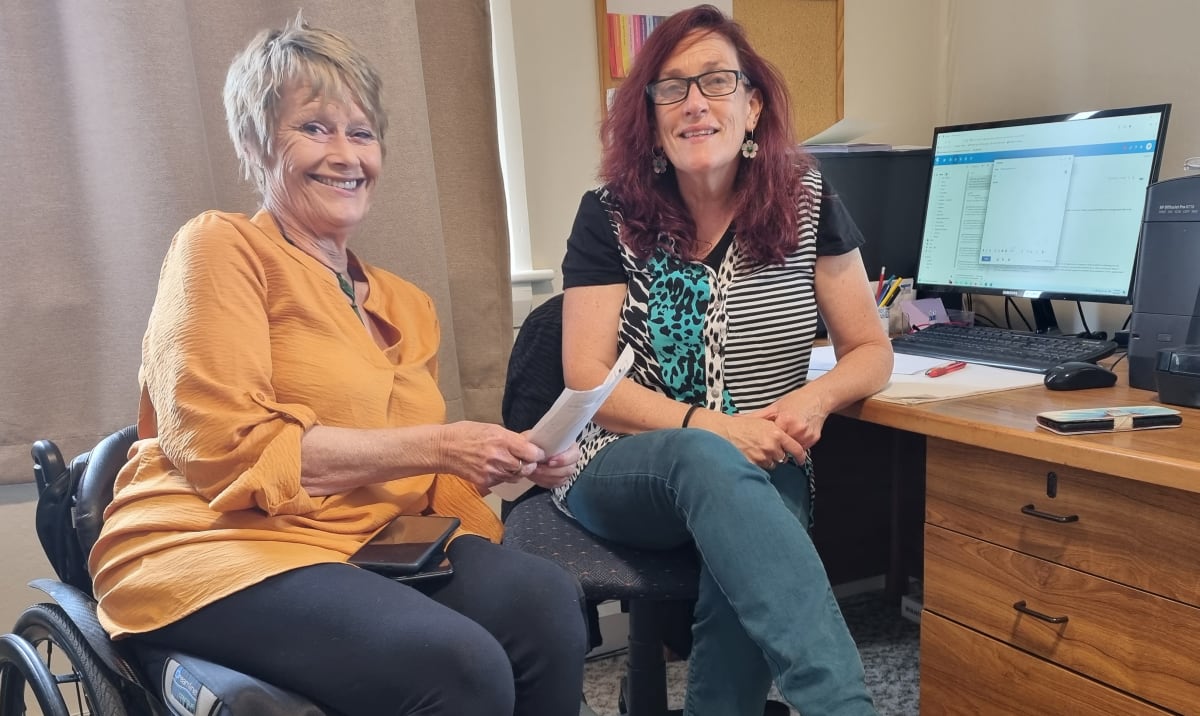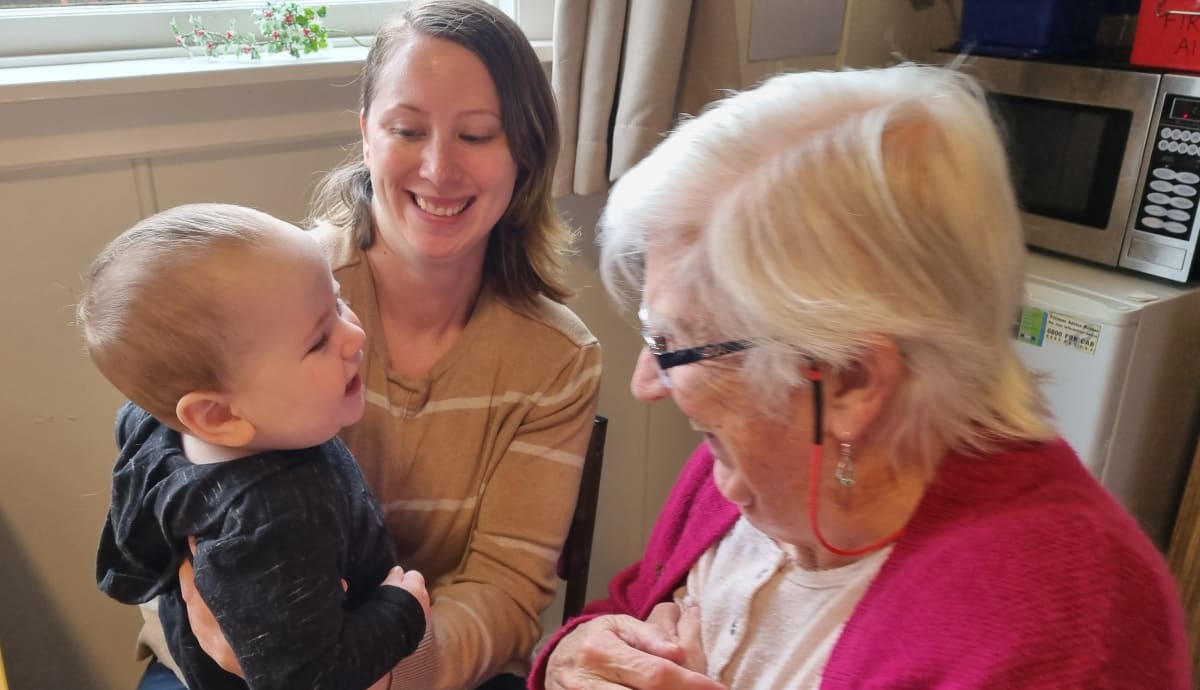
A combination of unfulfilled dreams, isolation and food poverty is keeping one small town’s volunteer sector busy and eager for donations - just no chickpeas, thanks
It can seem like the dream solution to a problem facing many older New Zealanders whose only capital is tied up in their homes.
Sell up at city prices, move to the provinces, buy a cheaper house and bank the profit as a retirement nest egg.
It’s been a common story on the West Coast in recent years and for some their new life in its small friendly towns has lived up to its idyllic promise.
But for others - especially as they age -it doesn’t quite work out that way.
In Reefton, the town’s social service hub, Who Cares House, is seeing an increase in pensioners struggling with loneliness, depression and food insecurity.
Lisa Neal, chair of the trust that runs the hub, says many are newcomers attracted to the picturesque town by its affordable housing.
“We had low property prices for a long time and people have cashed up and moved here. But they’ve come with no social support.

“So they get these challenges. They’re not always prepared for our winters, which are long and quite dismal. It’s a high depression time. There’ll be people taking handfuls of vitamin D but barely getting through.”
Hardy locals may accept the rain and fog as the price paid for golden summers in the rain forest. But it can come as a shock to those from “away” - as the locals refer to anywhere that’s not the West Coast.
“One of our clients, for instance, knew nothing about the place, came with not very much and no support and had a major mental-health crisis. They ended up in hospital for a while - we’ve been part of their recovery,” Neal says.
Going hungry
The trust is also seeing increasing numbers of superannuitants in need of food parcels, Neal says.
“People in that age group feel very embarrassed and ashamed to be coming in and asking for food support.
“One person said to me, ‘You know, I’m in my 60s and I’ve got nothing, and I’ve come to this - asking for food.’
“We just say, ‘Look we’re just a bunch of people helping other people through some tough times. We don’t know that next week it might be us needing help.’”
Families were the food bank’s first clients. Some arrived in town having spent their last cent on moving costs and a rental bond, Neal says.
But many of those now needing help are much older.
“You find someone’s daughter or son has come back home with three or four kids. All of a sudden the grandparents have to step in and they’ve been caught short. Things can happen in a hurry.”
In making sure the town’s older people are fed, Who Cares has come full circle.
The trust was set up in 1986 by a group of locals - most of them imports themselves - to check on housebound seniors and take them food.
Reefton vet Brenda Kaye, a founding trustee, says the group started with just one woman who would call on the elderly on her bike to make sure they were okay, delivering food and doing messages for them.
Helen Bollinger, another founding member, says it was soon apparent the town’s teenagers and unemployed were also in need of support.
“So we set up the Gateway Trust. Eight of us put in $1000 each and bought the old Knox Church for a youth centre and a place where Winz and other government agencies could come and offer their services.”
The group and others gave time and labour to make the building habitable. But the initiative was unpopular with some locals who feared it would attract the jobless to a town that prided itself on hard work and independence.
“But soon enough half the town was unemployed because the government shut down the Forest Service and post offices and so on and Gateway was in demand for training courses and as a support centre.”
Reefton’s fortunes gradually revived through gold mining and tourism.
Support continues
But the trust is still backing the town’s young people, using the proceeds from the sale of the church for education and other grants.
And these days at Who Cares House, a bungalow rented from Kāinga Ora, youth and age come together for tea and talk and home baking.
The benefits are often mutual.
Eighty-two-year-old Pauline McMahon retired to Reefton in 1989 with her husband, who died six years ago.

“I got so low this winter being on my own, I got really depressed, really down. But the person who was checking on me told me to get off my backside and get down to Who Cares and I’ve never looked back - it’s a godsend.”
Across the tea table young mother Cassandra Gantley shares her five-month-old boy with a circle of his admirers, including McMahon, who now knits for the baby.
Gantley takes McMahon meals at weekends.
“We came here from Christchurch last year for my husband’s work and it was a bit lonely at first.
“But now we come by nearly every day and I’ve become very close to Pauline and [Neal’s daughter] Ashleigh. We’re like family now.”
Neal says that’s typical of the way people are connecting through Who Cares.
Regular craft days, a kids’ play group, mah jong lessons and computer tuition draw up to 30 people at a time, making for a crowded house.
But she worries about the challenges ahead.
“It’s been a tough year. We had no doctor in winter, the rest home’s now closed and a lot of people who didn’t even believe Covid was a thing came down with it and it hit them hard.
“Some ended up in hospital and I think it’s all made many people suddenly feel vulnerable.”
Reefton’s do-it-yourself social-service agency runs on about $60,000 a year, most of it from a Lotteries grant and some from the government’s COGS fund.
“That pays for two part-time workers, our administration person and our house manager. The rest of us are voluntary.
“But now I get to have days off and I don’t have to do the cleaning,” Neal says.
Volunteers help out in the vege garden and drive others to appointments in Greymouth or Westport or as far as Christchurch and Nelson for specialist care.
Budgeting and counselling services and various government agencies use a room at Who Cares House to see clients and Alcoholics Anonymous meets there once a week.
But the food bank, set up this year to respond to Covid, has tapped into an unseen need, Neal says.
“Reefton’s a great wee town. People see the historic buildings and the hanging baskets and they think it’s lovely - and it is.
“But we’re still a microcosm of New Zealand - we have poverty, addiction and mental-health issues just like anywhere else.
“The difference is I might spot someone in the supermarket I know is dealing and I’ll see their customer in the next aisle, but we don’t judge. We keep a lid on things.”
Compassion rules
Neal has encountered some criticism for starting the food bank.
“I’ve been asked why Who Cares gave a food parcel to someone they’ve seen down at the pub, who’s an addict, maybe.
“But they get hungry too. We can’t say ‘mend your ways and we’ll help you’. We can’t expect everyone to be just like us. That would be ridiculous.”
However, longer-term food support is for people who are working with the budgeting service, Neal says.
“If they’re trying to repay debt, we’ll help for a set time so they can get on top of their bills.”
Who Cares distributes an average of 10 food parcels a week, not including pre-cooked frozen meals for Covid sufferers, a significant number for a town of 900.
As the holiday season nears, Neal finds herself awake at 3am running mental inventories of what’s in the freezer and cupboards at Who Cares House.
“We’re seeing another surge in demand. There are families trying to afford food and something from Santa for the kids and they can’t do both, so they’re coming to us for food.”
Help is on the way next week, Neal says, in the form of Kai Puku a food rescue service new to the West Coast.
Operating under the region’s Māori health provider, Poutini Waiora, Kai Puku collects surplus food from supermarkets and manufacturers and distributes it to food banks and other providers.
The Kai Puku is in Reefton this week, Neal says, picking up food from local shops and donations from shoppers.
She has just two wishes for Christmas and she knows one won’t be granted.
“First, I wish we weren’t needed, but we are. So the other one is - and this might sound ungrateful, but - please don’t give us chickpeas. We have no shortage of chickpeas.
“Please, just think about what your nana and grandad might like to eat on Christmas Day.”
Made with the support of the Public Interest Journalism Fund








